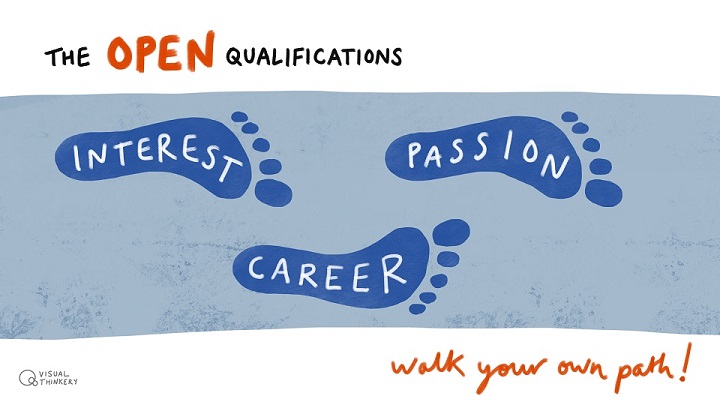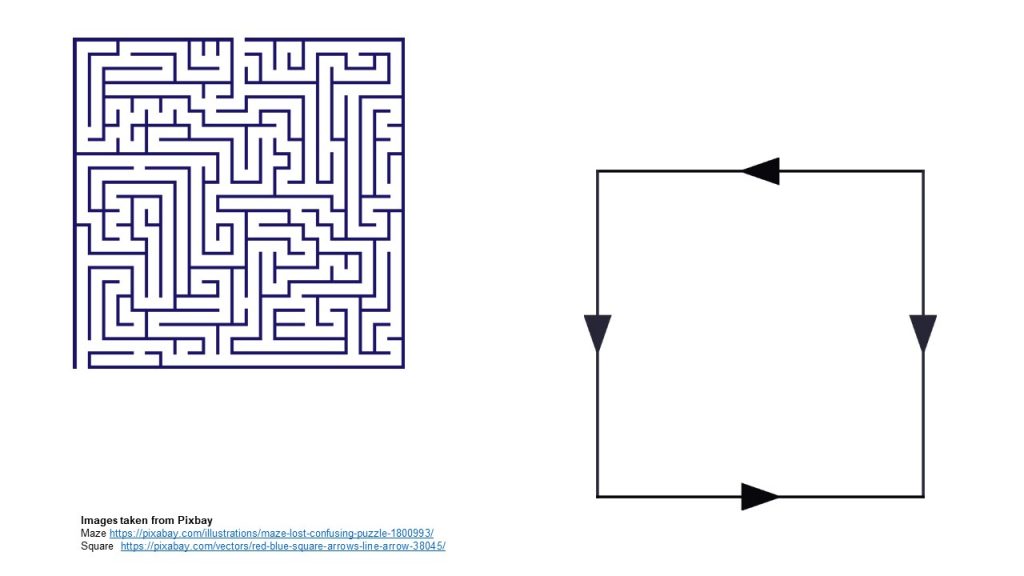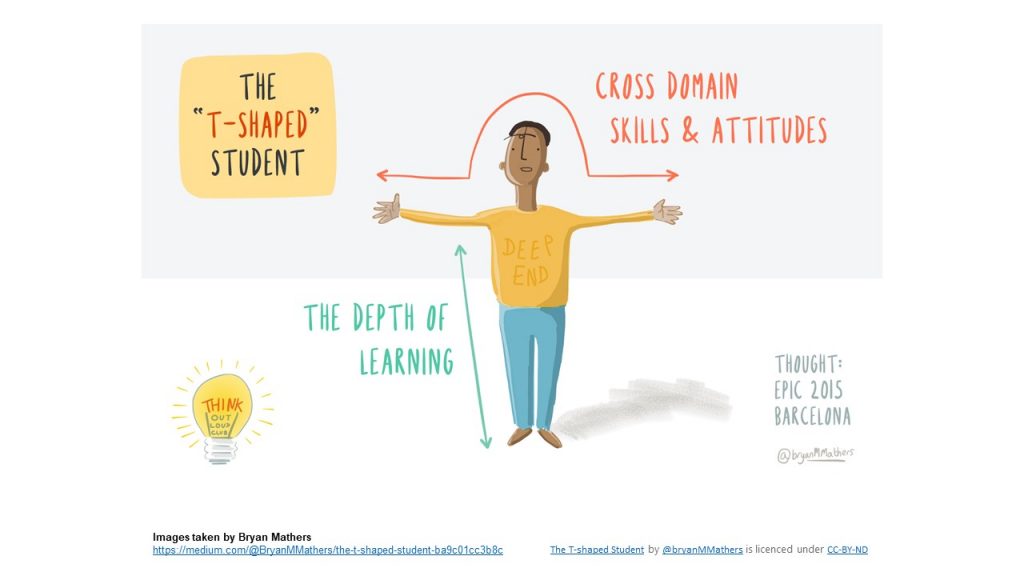Evening, thank you very much, it’s my pleasure and my privilege to be here. I’m going to talk a bit about my personal reflection of my journey into the ‘Open’ curriculum.
I’ve always been drawn to the creative – the artistic alchemy of materials, techniques, skills and passion, the ability to visualise a piece of work, cross creative boundaries and take contrasting elements and put them together. My background is in the Arts – I did a Visual Arts degree and at the time I had no idea but I’d now call that an interdisciplinary experience. In my degree, I learned about textiles, about glass and metal work, with no barriers across these disciplines. So I could knit with wire if I wanted to, I could use fragile kiln fired glass with hand dyed plastics to produce 3D structures and, as much as I loved and valued this experience, I came out of my degree very much feeling like I was a ‘jack of all trades and a master of none’, which is often how people describe the Open degree. However, my technical repertoire was broad, and I had learned to work across so many creative disciplines, which I only really learned to value when I became an art teacher in a Further Education environment. It was in this setting that my broad creative experience really bore fruit, using techniques from one discipline and skills from another. There was little of the wide-ranging arts curriculum that we delivered there that I could not teach, and when I look back on this experience now, I recognise that interdisciplinary and the multidisciplinary methods that I used. And now I see the value of that approach and this has no doubt influenced my contentment and my passion for inter- and multidisciplinary curriculum.

That picture is supposed to represent what is going on in my head most of the time [laughter]. In the same way that I look back on my education in my teaching experience with a new level of perceived value, I can also reflect on another facet of my experience – I’m dyslexic. This was something that was never properly recognised in my formal education and I do wonder whether I respond to inter- and multidisciplinary experience because of my dyslexia.
I know that my learning journeys are often different from those around me and that sometimes I have to go through a maze to get where I want to go. And it’s also true that I sometimes get lost and end up going around four sides of the square when other people can just cut straight across it. But I also know that in my approach, there is value and there’s worth. I see what other people don’t see and I process information and tasks in a way that other people don’t. And this transferable skill set, the ability to not think in swim lanes but across them, is not a learning difficulty. It’s not a disability but it’s an asset, both personally and professionally. Given the diverse needs of our students – we also know that we have the highest proportion of students with a disability on the Open Programme, who are bringing strategies to their learning that helps them press on with their education – our role as the Open Programme and our wider university is to help our students with this barrier to learning and unique ways of looking at the learning concept.
In the same way our students on the Open Programme often feel like they have to justify their journeys and learning experiences to friends, to family or to employers, the Open Programme team often seek to find ways and interventions to help our students explain their experiences, their reflections, and why this type of curriculum helps them stand out from the crowd in the work environment. And that this is a valid form of learning and way of exploring the world of education.
So, I feel that this type of learning makes me, and our students on the Open Programme, exactly what this visual shows – it’s the ‘t-shaped’ student. The fully-rounded learner or employee. The ready-to-hit-the-ground-running-individual, with multiple ways of looking at the world around them.
Students that participated in an Open degree consultation a couple of years ago said themselves that learning on the Open degree enables them to succeed in a wide range of disciplines, that they can also be flexible to changing jobs and the demands of those jobs as well. So, it’s great that at least some of our students are starting to recognise the importance of this, but there is, of course, much more work to do to help students and employers reach the same conclusion that our students have done.
I’m proud to represent the Open Programme and I am proud to support our students in this way of learning; this type of curriculum. And ready to champion it in the coming times, as colleagues are as well. And with the Fourth Industrial Revolution coming around the corner, this type of curriculum is more relevant than ever. So, it is absolutely my privilege to work on the Open Programme. It has also given me the chance to reflect on my education and my professional experiences and I see that the way I learn might be different from others around me; and I see that I might take a different path or route, but it is equally as valid. And my journey is endlessly rewarding, and I sincerely hope that our students feel the same way.


